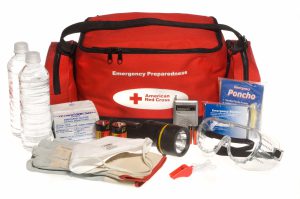Losing those close to you can be extremely painful and the feeling is always daunting when you’re responsible for managing funeral plans and family affairs.Here’s a checklist of things you need to consider when someone passes away.
- Notify relatives and close friends. Each family member is special, and no way to do it is right. Sharing the news in person or over the phone is important for certain families.An email or a text message can be fine for some. Split the job of calling people between multiple family members where possible.
- Decide on arrangements for burials/a funeral. If you’ve agreed to deal with a funeral home, visit the funeral director and talk about your different options. You can also choose to hold a memorial service or a celebration of life at a later date if you have opted for an immediate burial, cremation or contribution to research.
- Gravestone decision should be made. In the years to come, a headstone will honour a loved one. The style should not only mirror the personal interests of the deceased but should also reflect the way they lived their lives. New granite headstones are without a doubt the material which is most widely used. It is available in a number of colours and finishes, and is the stone that is most durable. It’s also the cheapest because of its wide accessibility.Many churchyards would accept granite headstones only because they tend to preserve the premises’ conventional aesthetic assets.
- Get a lawful death pronouncement. If your loved one died in a hospital, a doctor can take care of that. However, you’ll need to ask who to contact if your loved one died at home or in another town. Contact the hospice nurse whether he or she dies whilst in hospice care.
- Arrange, if necessary, for organ donation. Review the driver’s license and/or advance plan for your loved one to see if he or she was a donor. If so, quickly let hospital personnel know (or contact a local hospital if your loved one has died at home). Organ donation is time-sensitive, and it’s one place where quick action is critical.
- Arrange responsibility for any dependents or pets. When your loved one is responsible for caring for one or more people or pets, you can soon locate someone who will help take care of them while you are working up a long-term strategy.
- Sort property issues. When your loved one has lived alone, make sure to lock his or her house and any cars. When it is going to be left empty for a time, try notifying the landlord and/or police so they can help keep an eye on it.
- Notify Employer of the person. If the deceased is employed (or is actively volunteering), call them to let them know that your loved one is gone. Often now is a perfect time to enquire about the pay due, wages and life insurance.
- Make sure Life Insurance companies are informed. For any life insurance policy the deceased has received, fill out the claim form. Additionally, consider checking your friends and relatives who might have listed your loved one on their life insurance plans.
If a beloved family member or loved one dies, having to cope with burial plans, and your loved one’s estate will make it difficult to handle a terrible tragedy. Using this guide will let you feel that you are honouring the wishes of your loved one and stop you from trying to make a lot of choices while you’re in mourning.
Additionally, it can be daunting to deal with all the specifics that need to be taken care of when you lose a loved one, either share duties with other family members if you can, or with a professional who does any or all of these issues if the budget allows.



